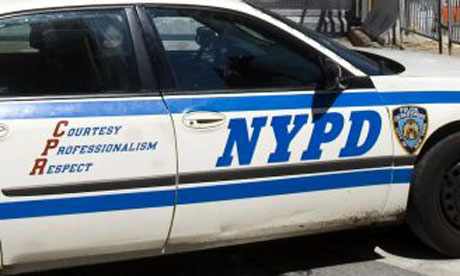What began two years ago as a low-profile wiretap investigation of aNew York Police Department officer has resulted in criminal charges against at least a dozen officers alleging they abused their authority by helping family and friends avoid paying traffic tickets, two people familiar with the case said Thursday.
The officers were expected to be arraigned Friday in the Bronx, said the people, who spoke on condition of anonymity because authorities hadn't announced the results of the grand jury investigation.
The people declined to detail the charges or name the officers. The Bronx district attorney's office declined to comment Thursday, as did Paul Browne, chief spokesman for the NYPD, and union officials.
The ticket-fixing case doesn't appear to rise to the level of the NYPD's more notorious corruption scandals. But in terms of numbers officers facing criminal or internal administrative charges, the probe represents the largest crackdown on police accused of misconduct in recent memory.
The charges are the latest in a spate of corruption allegations against NYPD officers.
Earlier this week, federal prosecutors in Manhattan brought conspiracy and other charges against five current and three former officers alleging they were part of a gun-running ring. In two other recent unrelated federal cases, one officer was charged with arresting a black man without cause and using a racial slur to describe the suspect, and another with using a law enforcement database to try to trump up charges against an innocent man.
As the ticket-fixing investigation unfolded, union officials complained that the probe unfairly singled out officers for an unofficial practice undoing paperwork on traffic citations before they reach court that has been tolerated for years.
"This issue could have and should have been addressed differently," Patrick Lynch, president of the powerful Patrolmen's Benevolent Association, has said.
The case evolved from a 2009 internal affairs probe of a Bronx officer suspected of associating with a drug dealer, officials said. While listening to the officer's phone, investigators heard calls from people seeing if he could fix tickets for them, they say.
That led to more wiretaps that produced more evidence of more officers having similar conversations. An unrelated drunken driving case in the Bronx provided a window into the secret probe when prosecutors were forced to disclose to the defence that the arresting officer was among those recorded talking about ticket fixing.
Aside from those officers charged criminally, dozens more could face internal charges. In one disciplinary case already decided earlier this year, a former PBA financial secretary in the Bronx admitted administrative misconduct charges and was docked 40 days of vacation and suspended for five days.
Last fall, the police department, America's largest with about 35,000 officers, installed a new computer system that tracks tickets and makes it much more difficult to tamper with the paper trail.
NYPD Commissioner Raymond Kelly recently formed a new unit within internal affairs to look into ticket fixing. Its officers sit in on traffic court testimony and comb through paperwork to ensure none of the methods is being wrongly employed.
The last serious corruption scandal for the NYPD was the so-called "Dirty 30" case from the early 1990s. More than 33 officers from Harlem's 30th Precinct were implicated in the probe, with most pleading guilty to charges including stealing cash from drug dealers, taking bribes, beating suspects and lying under oath to cover their tracks.
http://www.guardian.co.uk/world/2011/oct/27/new-york-usa

This article comes to confirm that a spark can even burn the forest. It's unfortunate that the people that are meant to protect us do this sort of things. While I understand that they fixed traffic tickets for friends and relatives, this is still against the law and needs to be punished accordingly. Because the community needs to trust their law enforcement.
ReplyDelete